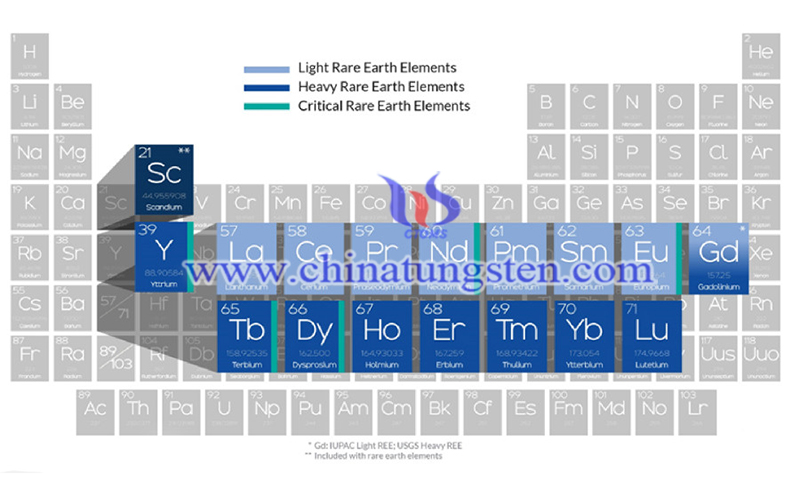Penn State Will Support US on Critical Minerals Such as Rare Earths
- Details
- Category: Tungsten's News
- Published on Wednesday, 25 November 2020 21:22
To support the US need for critical minerals such as rare earths, Pennsylvania State University (Penn State) has entered a memorandum of understanding (MOU) with the Colorado School of Mines to establish a collaboration designed to be responsive in supporting the US need for critical minerals.
In the modern global economy, minerals are part of virtually every product manufactured. Critical minerals are those with exceptional economic importance and are found in most electronics today. New technologies are increasingly reliant on specific critical minerals not widely used a few decades ago. Many of these critical minerals are imported and their supply chain is at risk. Their limited availability can have significant consequences on the economic and national security of the US.

Through this MOU, the two universities will partner in research to support the producers and consumers of key mineral commodities in the United States, help promote the development of the US manufacturing industry and cultivate a well-trained workforce to meet the demand for key minerals from the United States.
Penn State’s senior vice president for research, Lora Weiss, said: “Both schools are committed to developing innovations to enable a complete U.S. capability for critical minerals, from basic science to supply chain through to production. Together we span from Appalachia to the Rockies and collectively we have the technical base and established relationships with stakeholders to realize the full potential value of our natural resources. Our combined team is well-positioned to be extremely responsive to the country’s critical minerals needs."
There are 35 minerals or mineral material groups that are currently considered critical. The list includes the rare earths, a set of 17 metals necessary for devices that people use every day like rechargeable batteries, cellphones and magnets.
Lee Kump, John Leone Dean in the College of Earth and Mineral Sciences said: “Penn State launched the Center for Critical Minerals in spring 2019 to leverage Penn State’s existing faculty, facilities and research strengths in an effort to make the University the go-to resource for critical minerals research and technical support for industry. This partnership with Mines, a top mineral resources school, strengthens that leadership position and opens up strategic areas for collaboration.”
The US imports nearly 100% of its needed rare earths, with China producing about 85% of the world supply.
Sarma Pisupati, professor of energy and mineral engineering and chemical engineering, said: " Our immediate plan is to develop relationships with the industries that are leading the effort to produce rare critical elements domestically. Our goal to become the backbone for research for these industries to support them in solving the nation's dependence on importing critical minerals, such as rare earths and tungsten."
"Industry needs a qualified and well-trained workforce," said Pisupati, who also directs Penn State's Center for Critical Minerals. "They are interested in providing internships for our students so that they understand the workings of the industry and hiring them when they graduate."
- Rare Earth Manufacturer & Supplier, Chinatungsten Online: www.chinatungsten.com
- Tungsten News & Prices of China Tungsten Industry Association: www.ctia.com.cn
- Molybdenum News & Price: news.molybdenum.com.cn
- Tel.: 86 592 5129696; Fax: 86 592 5129797; Email: sales@chinatungsten.com



 sales@chinatungsten.com
sales@chinatungsten.com